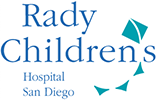Search results
-
Getting Rid of Old Medicines for Teens
Medicines can cause problems if they get into the water supply or the wrong hands. Find out how to dispose of old or unused meds safely in this article for teens.
-
How to Safely Store and Dispose of Medicines for Parents
Part of using medicines safely is knowing how to store them and how to get rid of them after they expire or are no longer needed.
-
Burns for Parents
Burns, especially scalds from hot water and liquids, are some of the most common childhood accidents. Minor burns often can be safely treated at home, but more serious burns require medical care.
-
How to Handle an Eye Injury for Parents
Some eye injuries can be treated at home, while others require a visit to the doctor or emergency room. Find out what to do if your child has eye pain.
-
Tampons, Pads, and Other Period Supplies for Teens
When it comes to pads and tampons, there are lots of choices. It may take some experimenting before you find what works best for you. Here are some tips.
-
Tunneled Central Lines for Parents
These surgically placed tubes let kids get blood drawn and receive intravenous (IV) medicines and fluids without repeated needle sticks.
-
Peripherally Inserted Central Catheter (PICC Line) for Parents
A PICC line is like an IV line, but is much longer and can stay in place for longer periods.
-
Antegrade Continence Enema (ACE) for Parents
An antegrade continence enema, or ACE, is a different way to give an enema. Enemas can help someone poop if they become constipated or have another problem moving their bowels.
-
Pads and Tampons for Kids
When a girl gets her period, she'll need some supplies. Find out more in this article for kids.
-
Your Digestive System for Kids
The digestive system breaks down the food you eat. Learn how in this article for kids.

 Note: All information is for educational purposes only. For specific medical advice,
diagnoses, and treatment, consult your doctor.
Note: All information is for educational purposes only. For specific medical advice,
diagnoses, and treatment, consult your doctor.